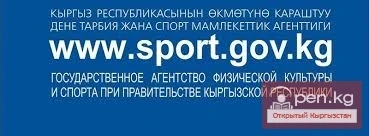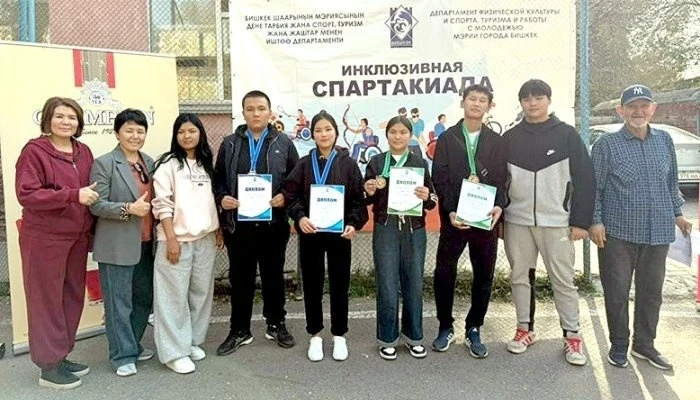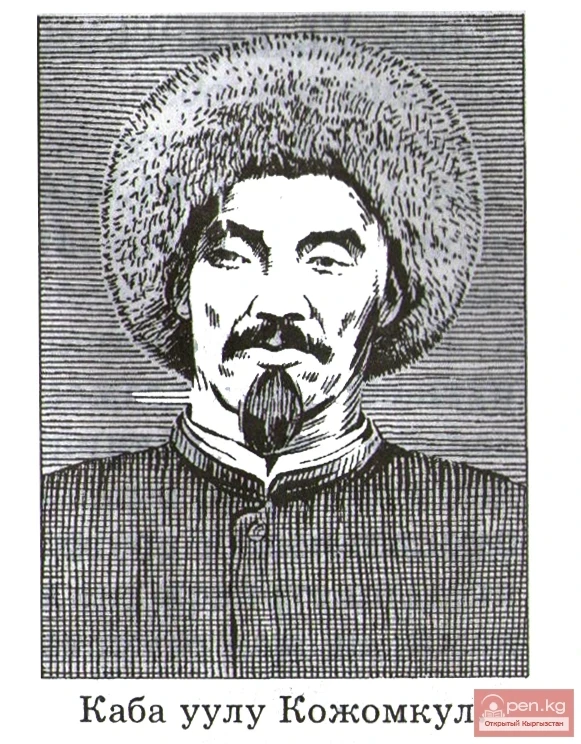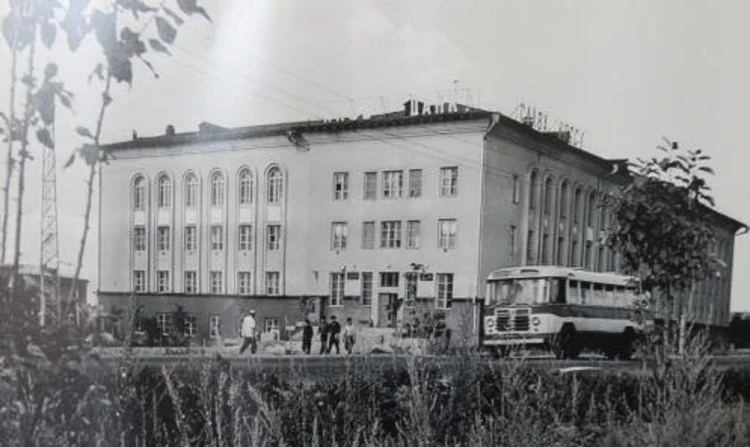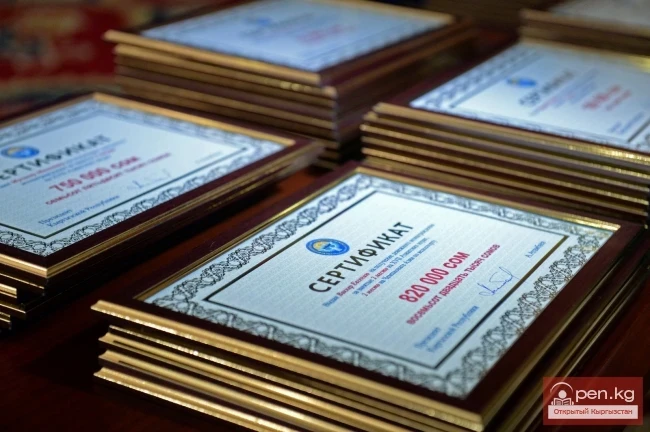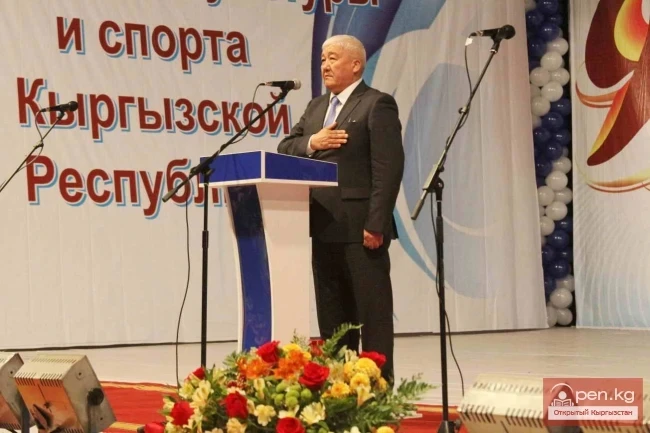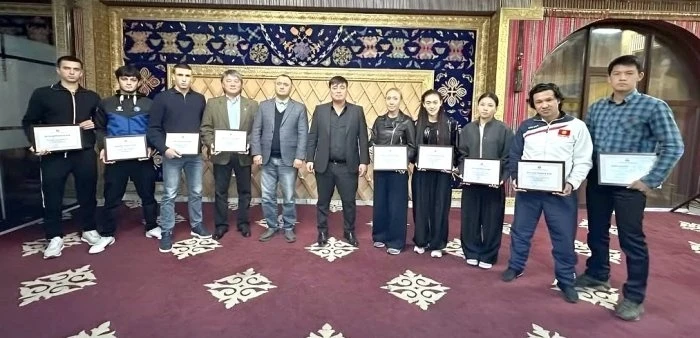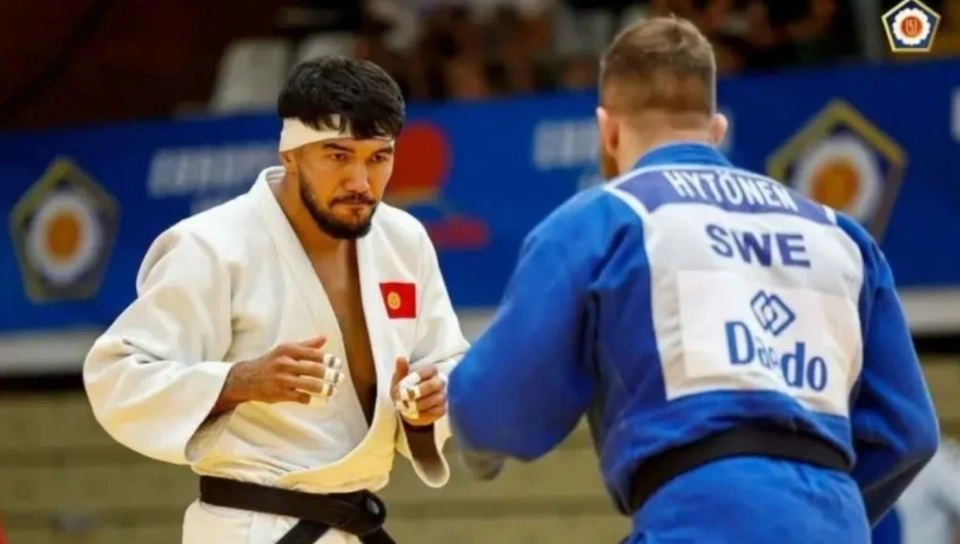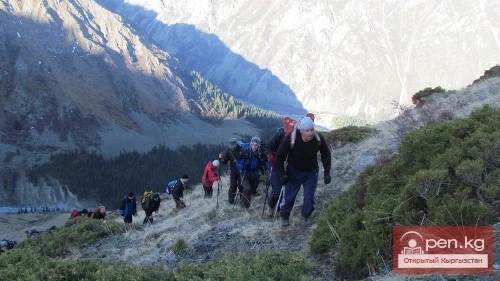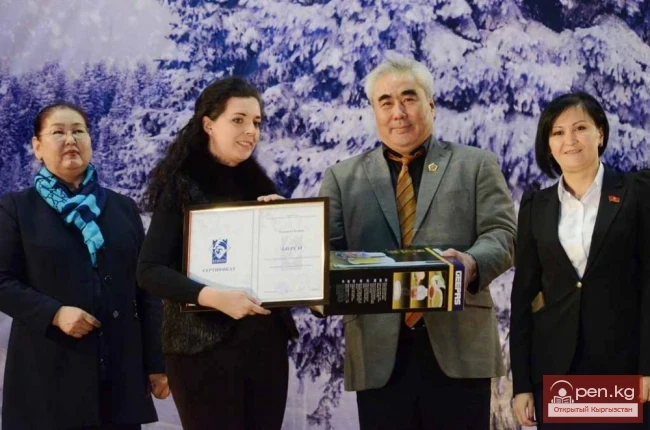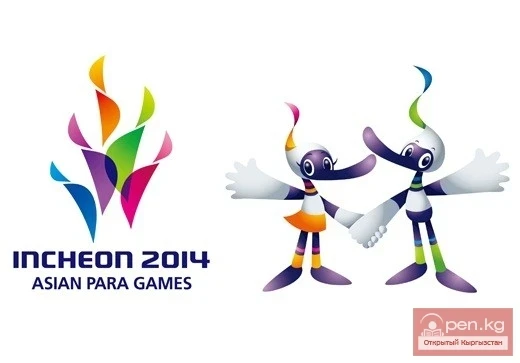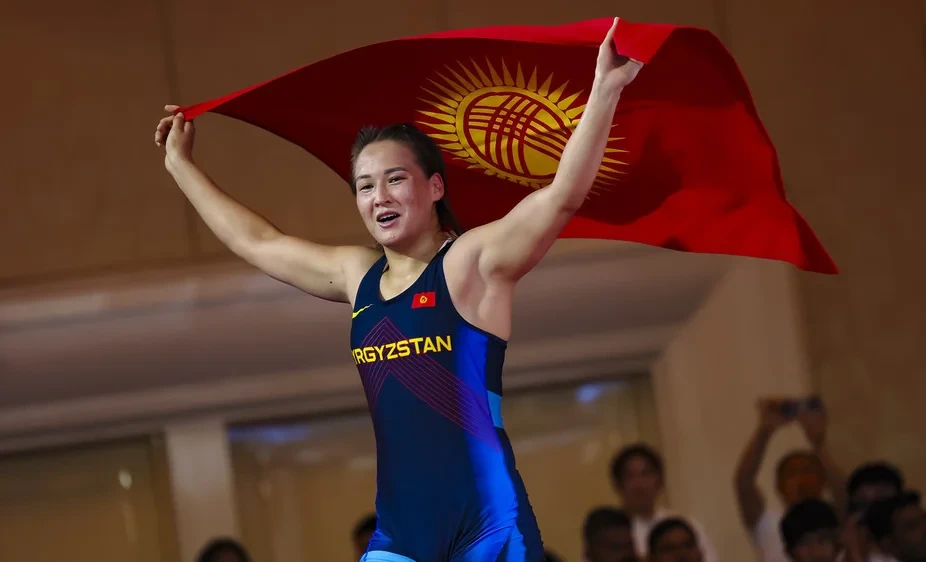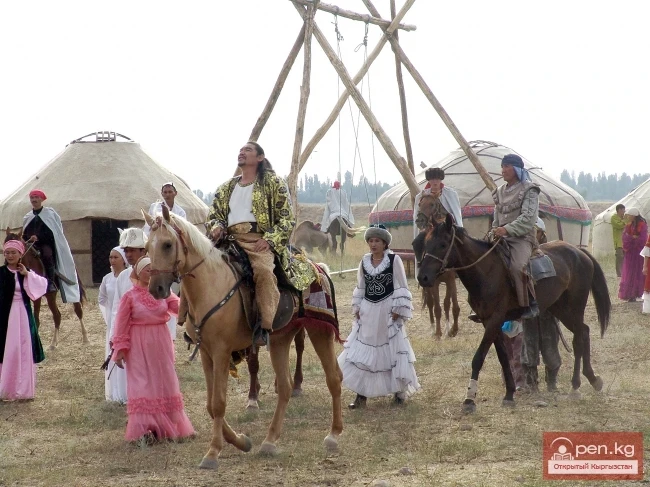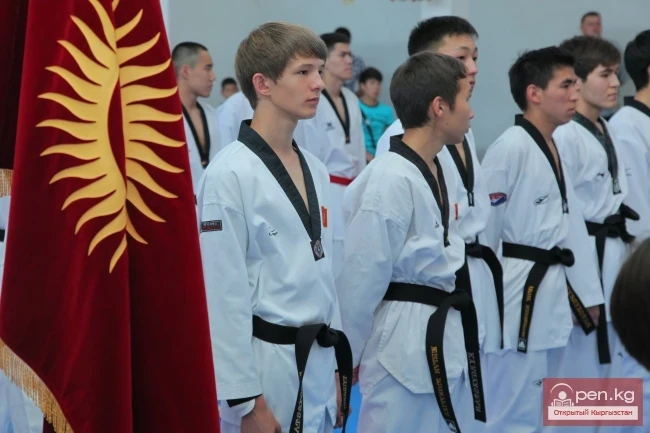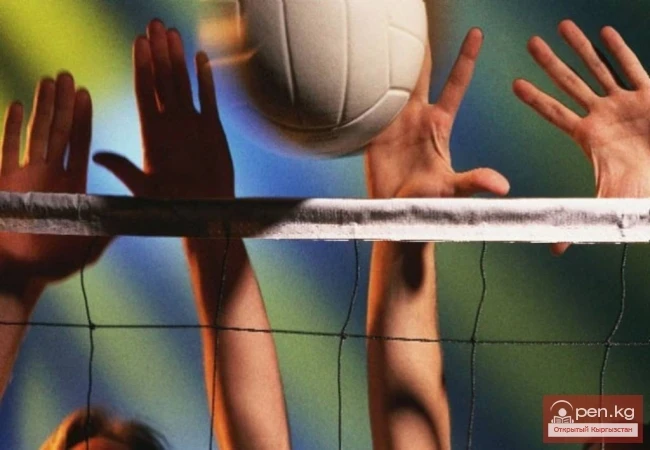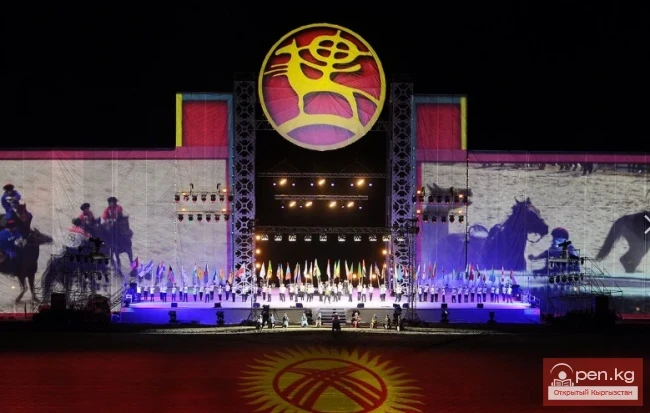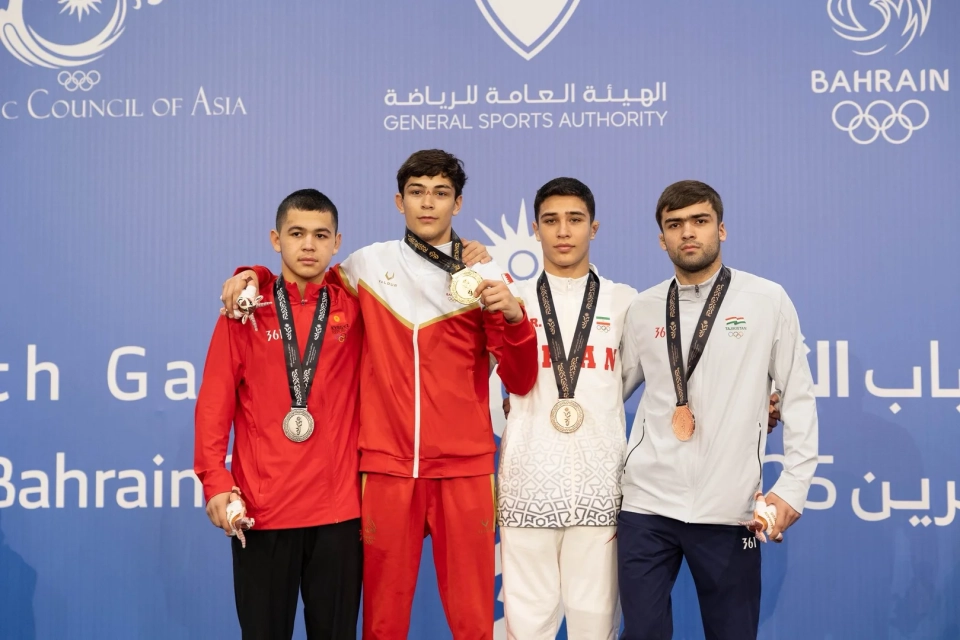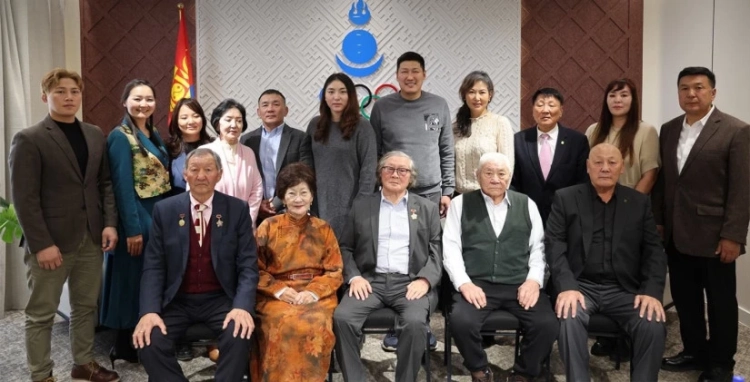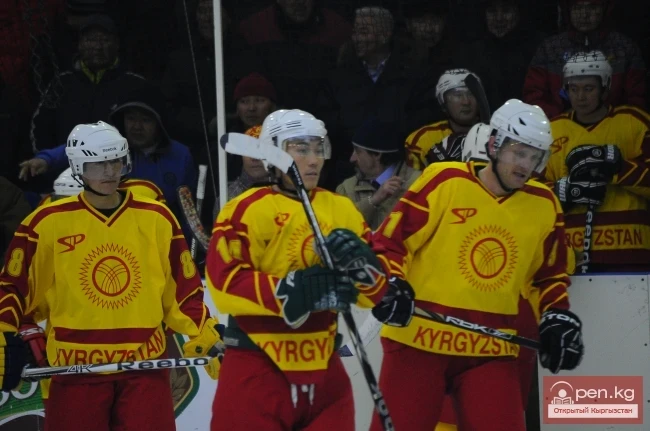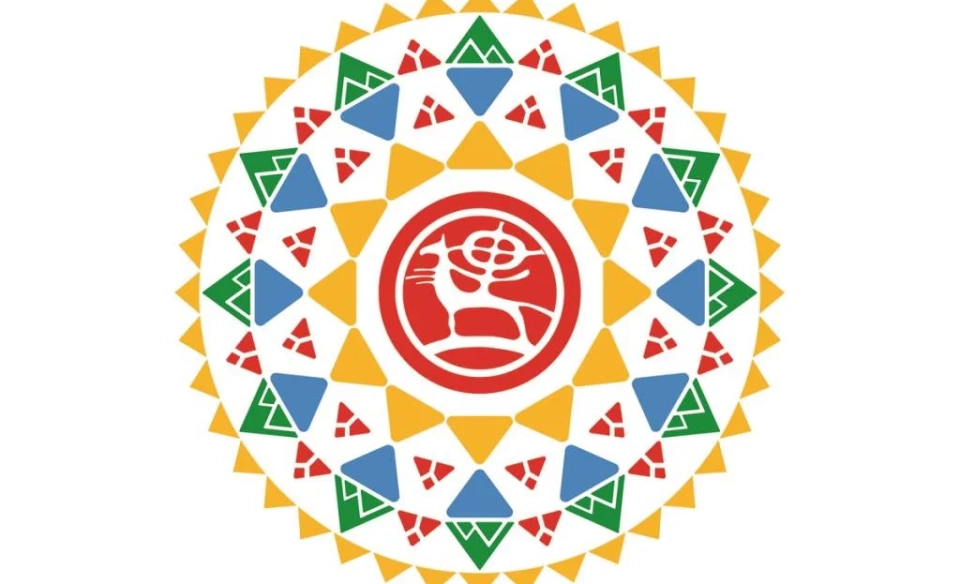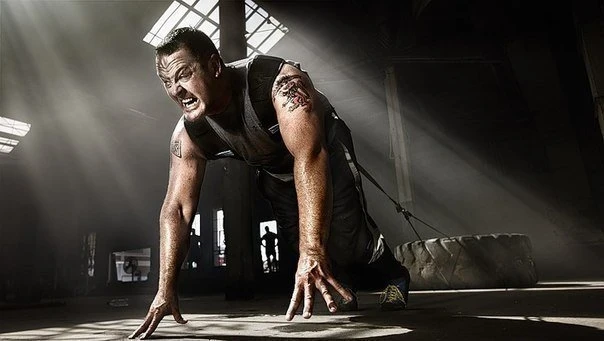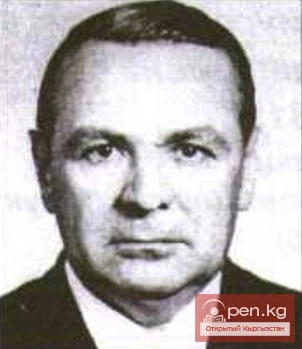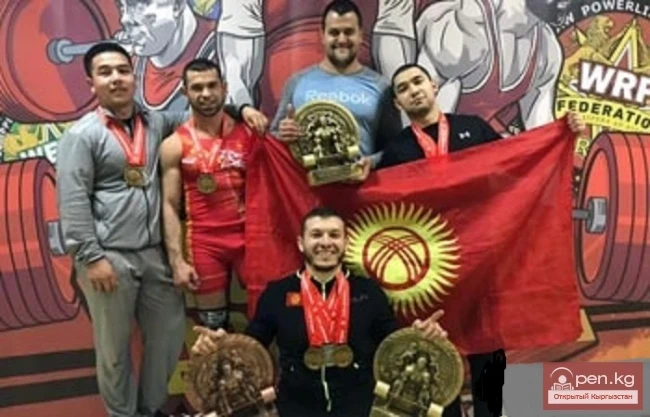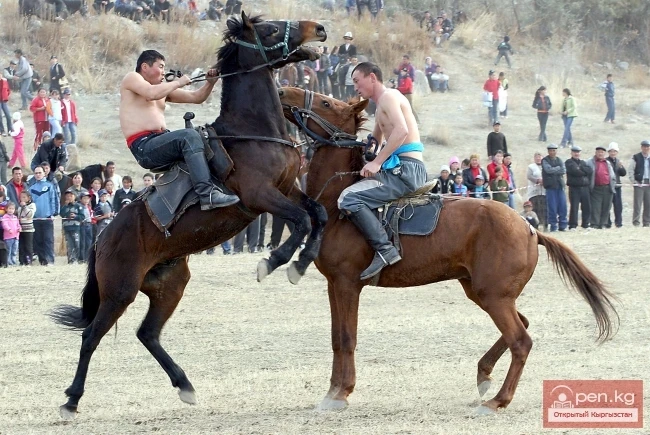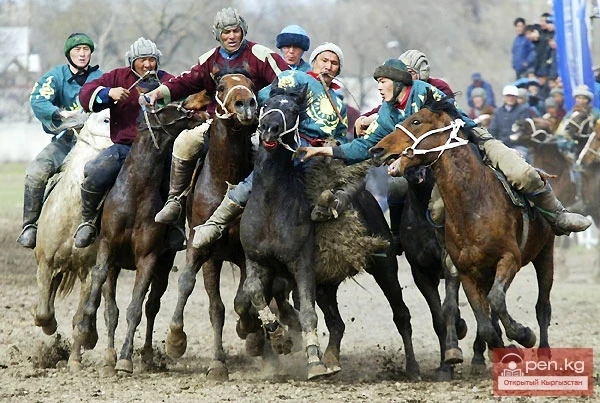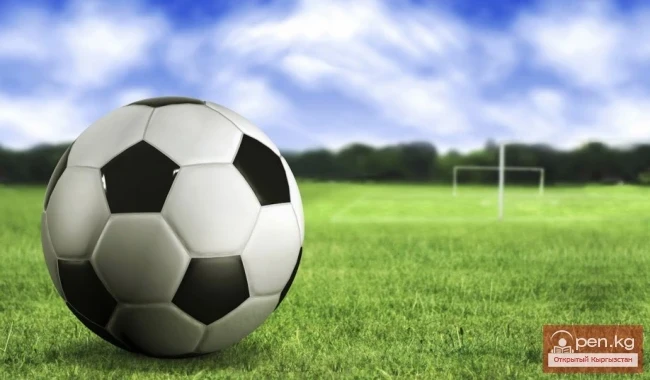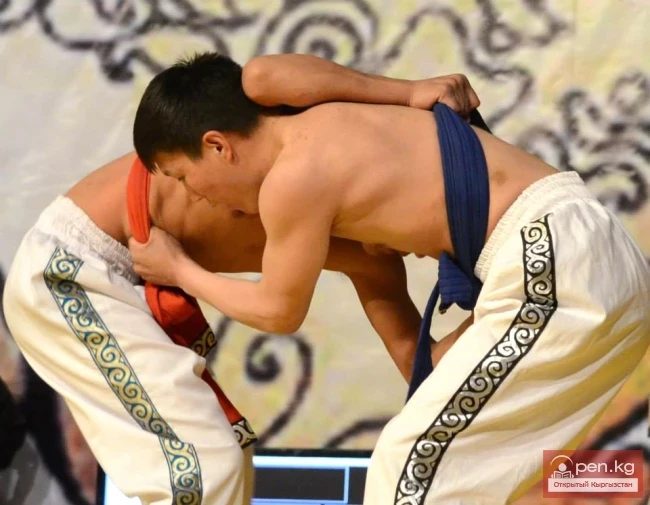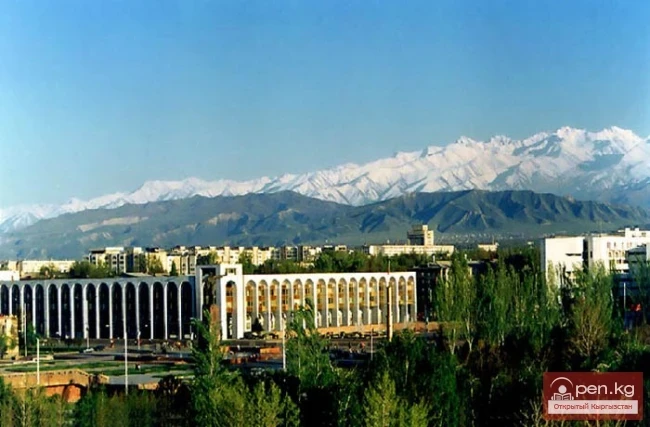In this draft, among other things, it is proposed to create conditions for people engaged in adaptive sports, including those with hearing impairments. The draft law also defines the rules for interaction between republican federations and the authorized state body in the field of physical culture and sports, as well as introduces norms for accounting the work experience of athletes.
Additionally, there are plans to develop rules that will ensure the safety of spectators at mass sporting events.
According to the explanatory note, the Deaflympics, held since 1924 and recognized by the International Olympic Committee, are competitions for athletes with hearing impairments and gather participants from more than 100 countries. One of the features of these games is the absence of sound signals and the prohibition of using hearing aids during competitions.
Kyrgyzstan has participated in the Deaflympics as an independent state since 2009, and prior to that, from 1957 to 1991, Kyrgyz athletes competed as part of the USSR team.
The most successful debut for the Kyrgyzstan team was at the XXIV Summer Deaflympics, which took place in Brazil in May 2022, where the team won 6 medals — 2 silver and 4 bronze.
At the Asia-Pacific Deaflympics held in Kuala Lumpur in December 2024, Kyrgyz athletes demonstrated outstanding results, winning 18 medals (4 gold, 7 silver, and 7 bronze) and finishing 6th in the team standings.
The draft law also notes that despite the high results of Deaflympic athletes, one-time rewards have not been paid. Including Deaflympic sports in legislation will create a legal basis for financing these disciplines, supporting adaptive sports, and enabling athletes to participate in international competitions under state auspices.
Furthermore, the project proposes to restore the procedure for state accreditation of sports federations, which was canceled in 2018. This practice is already in place in Russia, Kazakhstan, Uzbekistan, and Belarus.
The document emphasizes that although sports federations receive significant funding from the state, many of them do not specify their responsibilities in their charters. The state, which invests funds in federations, has the right to demand transparency and accountability for their activities.
The accreditation procedure will allow the qualification of activities aimed at the development of sports without state accreditation as illegal entrepreneurial practices and will establish uniform norms for regulating federations, the agency reports.
It is also proposed to consider the time spent by athletes as part of the national team in their work experience. This is justified by the fact that participation in the national team is a form of professional activity involving regular training and meeting standards.
"A sports career is time-limited and associated with physical loads and the risk of injury, often ending before reaching retirement age," the document states. The period of preparation and participation in competitions excludes the possibility of simultaneous employment.
In light of the increasing number of sports events and rising attendance, there are plans to implement safety rules for spectators. The State Committee for National Security has already initiated a draft resolution on maintaining public order at mass events.
These rules become particularly important considering the upcoming VI World Nomad Games, which will be held in Kyrgyzstan in 2026, as mentioned in the explanatory note.
Comparative Table
| № | Current Version | Proposed Version |
| Law of the Kyrgyz Republic "On Physical Culture and Sports" dated January 21, 2000, No. 36 | ||
| 1 | Article 3. Key Concepts For the purposes of this Law, the following key concepts are used: Asian and Asian Paralympic Games - sports competitions held every 4 years among athletes from all Asian countries under the auspices of the Olympic Council of Asia, as well as among athletes with disabilities affecting the musculoskeletal system and visual organs; prohibited substances and/or methods in sports (hereinafter - doping) - chemical compounds (substances, medications) and methods included in the prohibited list of the international standard of the World Anti-Doping Agency, including the use or attempted use of substances and/or methods included in the lists of substances and/or methods prohibited for use in sports; normative foundations of physical education - a set of criteria for assessing (norms) physical fitness, consistently covering the population of the Kyrgyz Republic in age aspects; Olympic movement - an international social movement aimed at the development of sports as one of the means of achieving physical and spiritual perfection of a person, strengthening international sports cooperation; Paralympic movement - a part of the international Olympic movement that unites organizations and individuals with health limitations, aimed at developing sports as one of the means of achieving physical and spiritual perfection, strengthening international cooperation, and involving people with disabilities in sports and a healthy lifestyle; Olympic and Paralympic Games - international comprehensive sports competitions held every 4 years under the auspices of the International Olympic and Paralympic Committees; World Championships in Olympic Sports - major international competitions held every 4 years or no more than once a year among athletes; system of physical education of the population and training of athletes - a combination of state and public forms of activity aimed at the physical education of the population and the development of sports in the country; sport - a generalized concept of one of the components of the physical culture of society, historically developed in the form of competitive activity and special practices for preparing a person for competitions, as well as specific relationships, norms, and achievements arising in the process of this activity; high-performance sport - a sphere that ensures the disclosure of a person's potential capabilities, achieving high sports results, and setting records; sports competition - a way of demonstrating, comparing, and evaluating sports achievements; athlete - a person who has a sports rank or title in accordance with the Unified Sports Classification, systematically engaged in a chosen sport and participating in sports competitions according to established rules; physical culture - a component of culture, a field of social activity that is a combination of spiritual and material values created, developed, and used by society for the purpose of physical development of a person and strengthening health; physical education - an organized pedagogical process aimed at forming a healthy, physically and spiritually perfect, morally resilient younger generation, strengthening health, increasing productivity, creative longevity, and extending human life; physical culture and sports organizations - commercial and non-commercial organizations regardless of their organizational legal forms and forms of ownership, whose main activity is providing services in the field of physical culture and sports; head coach of the national team - a person with higher specialized education responsible for the management, formation, preparation, and performance of the national team in a sport at the Olympic and Paralympic Games, Asian and Asian Paralympic Games, World Championships in sports, and other international competitions, appointed in the manner determined by the authorized state body in the field of physical culture and sports; senior coach of the national team - a person with higher specialized education responsible for ensuring professional training, education, improvement of physical, theoretical, moral-volitional, and technical aspects of the sports training process of athletes in a specific sport for their performance at the Olympic and Paralympic Games, Asian and Asian Paralympic Games, World Championships in sports, and other international competitions, appointed in the manner determined by the authorized state body in the field of physical culture and sports; personal coach - a person with sports professional education conducting the training process for preparing a champion or prizewinner and guiding their competitive activities to achieve sports results; first coach - a person specializing in a specific sport who participated in the initial training and improvement of skills by developing the athlete's functional capabilities in their youth, who later won the title of champion or became a prizewinner.[/td> | Article 3. Key Concepts For the purposes of this Law, the following key concepts are used: Asian and Asian Paralympic Games - sports competitions held every 4 years among athletes from all Asian countries under the auspices of the Olympic Council of Asia, as well as among athletes with disabilities affecting the musculoskeletal system and visual organs; prohibited substances and/or methods in sports (hereinafter - doping) - chemical compounds (substances, medications) and methods included in the prohibited list of the international standard of the World Anti-Doping Agency, including the use or attempted use of substances and/or methods included in the lists of substances and/or methods prohibited for use in sports; normative foundations of physical education - a set of criteria for assessing (norms) physical fitness, consistently covering the population of the Kyrgyz Republic in age aspects; Olympic movement - an international social movement aimed at the development of sports as one of the means of achieving physical and spiritual perfection of a person, strengthening international sports cooperation; Paralympic movement - a part of the international Olympic movement that unites organizations and individuals with health limitations, aimed at developing sports as one of the means of achieving physical and spiritual perfection, strengthening international cooperation, and involving people with disabilities in sports and a healthy lifestyle; Olympic, Paralympic, and Deaflympic Games - international comprehensive sports competitions held every 4 years under the auspices of the International Olympic, Paralympic, and Deaflympic Committees; World Championships in Olympic Sports - major international competitions held every 4 years or no more than once a year among athletes; system of physical education of the population and training of athletes - a combination of state and public forms of activity aimed at the physical education of the population and the development of sports in the country; sport - a generalized concept of one of the components of the physical culture of society, historically developed in the form of competitive activity and special practices for preparing a person for competitions, as well as specific relationships, norms, and achievements arising in the process of this activity; high-performance sport - a sphere that ensures the disclosure of a person's potential capabilities, achieving high sports results, and setting records; sports competition - a way of demonstrating, comparing, and evaluating sports achievements; athlete - a person who has a sports rank or title in accordance with the Unified Sports Classification, systematically engaged in a chosen sport and participating in sports competitions according to established rules; physical culture - a component of culture, a field of social activity that is a combination of spiritual and material values created, developed, and used by society for the purpose of physical development of a person and strengthening health; physical education - an organized pedagogical process aimed at forming a healthy, physically and spiritually perfect, morally resilient younger generation, strengthening health, increasing productivity, creative longevity, and extending human life; physical culture and sports organizations - commercial and non-commercial organizations regardless of their organizational legal forms and forms of ownership, whose main activity is providing services in the field of physical culture and sports; head coach of the national team - a person with higher specialized education responsible for the management, formation, preparation, and performance of the national team in a sport at the Olympic and Paralympic Games, Asian and Asian Paralympic Games, World Championships in sports, and other international competitions, appointed in the manner determined by the authorized state body in the field of physical culture and sports; senior coach of the national team - a person with higher specialized education responsible for ensuring professional training, education, improvement of physical, theoretical, moral-volitional, and technical aspects of the sports training process of athletes in a specific sport for their performance at the Olympic and Paralympic Games, Asian and Asian Paralympic Games, World Championships in sports, and other international competitions, appointed in the manner determined by the authorized state body in the field of physical culture and sports; personal coach - a person with sports professional education conducting the training process for preparing a champion or prizewinner and guiding their competitive activities to achieve sports results; first coach - a person specializing in a specific sport who participated in the initial training and improvement of skills by developing the athlete's functional capabilities in their youth, who later won the title of champion or became a prizewinner; Deaflympic movement - is a part of the international Deaflympic movement, whose goals are to promote and implement the principles of the Deaflympic movement, contribute to the development of physical culture and sports among athletes with disabilities in Deaflympic sports, strengthen international sports cooperation, and participate in the Deaflympics and other international sports events held under the auspices of the International Committee of Sports for the Deaf. |
| 2 | Article 6. Powers of the Cabinet of Ministers of the Kyrgyz Republic in the Field of Physical Culture and Sports The Cabinet of Ministers of the Kyrgyz Republic: - ensures the implementation of state policy in the field of physical culture and sports; - ensures the creation of a unified state information support system; - determines the procedure for maintaining the National Register of Sports and Sports Disciplines; - determines state norms for financing physical culture and sports, scientific research in the field of physical culture and sports, scientific and methodological support of the system of physical education and training of athletes, professional training, and activities for improving qualifications and retraining of specialists in the field of physical culture and sports; - coordinates and controls the activities of official public associations in the field of physical culture and sports regarding the organization and training of highly qualified athletes representing the Kyrgyz Republic in international sports competitions; - determines the procedure for awarding scholarships to athletes of the Kyrgyz Republic; - determines the amounts of state payments in the form of one-time monetary rewards for achieving high sports results in the field of physical culture and sports; - develops and approves anti-doping rules for the Kyrgyz Republic; - determines the authorized state body that exercises control over the conduct of anti-doping activities in sports; - determines the procedure for giving consent for registration (re-registration) in the justice authorities and maintaining the register of republican federations by sports. The amount of one-time monetary rewards is determined one year before the start of athletes' participation in the Olympic, Paralympic, Asian, and Asian Paralympic Games, as well as in World and Asian Championships. At the same time, the amounts of rewards for champions and prizewinners, as well as the amounts of rewards and the percentages of their distribution for coaches (head coach of the national team, senior coach of the national team, personal coach, first coach) and doctors are set at no less than the amount of the previous one-time monetary reward. The Cabinet of Ministers of the Kyrgyz Republic has the right to establish state payments of one-time monetary rewards for other places through its normative legal acts. | Article 6. Powers of the Cabinet of Ministers of the Kyrgyz Republic in the Field of Physical Culture and Sports The Cabinet of Ministers of the Kyrgyz Republic: - ensures the implementation of state policy in the field of physical culture and sports; - ensures the creation of a unified state information support system; - determines the procedure for maintaining the National Register of Sports and Sports Disciplines; - determines state norms for financing physical culture and sports, scientific research in the field of physical culture and sports, scientific and methodological support of the system of physical education and training of athletes, professional training, and activities for improving qualifications and retraining of specialists in the field of physical culture and sports; - coordinates and controls the activities of official public associations in the field of physical culture and sports regarding the organization and training of highly qualified athletes representing the Kyrgyz Republic in international sports competitions; - determines the procedure for awarding scholarships to athletes of the Kyrgyz Republic; - determines the amounts of state payments in the form of one-time monetary rewards for achieving high sports results in the field of physical culture and sports; - develops and approves anti-doping rules for the Kyrgyz Republic; - determines the authorized state body that exercises control over the conduct of anti-doping activities in sports; - determines the procedure for giving consent for registration (re-registration) in the justice authorities and maintaining the register of republican federations by sports. The amount of one-time monetary rewards is determined one year before the start of athletes' participation in the Olympic, Paralympic, Deaflympic, Asian, and Asian Paralympic Games, as well as in World and Asian Championships. At the same time, the amounts of rewards for champions and prizewinners, as well as the amounts of rewards and the percentages of their distribution for coaches (head coach of the national team, senior coach of the national team, personal coach, first coach) and doctors are set at no less than the amount of the previous one-time monetary reward. The Cabinet of Ministers of the Kyrgyz Republic has the right to establish state payments of one-time monetary rewards for other places. |
| 3 | Article 8. Public Bodies for the Management of Physical Culture and Sports In the Kyrgyz Republic, a network of public associations in the field of physical culture and sports operates to promote the implementation of state policy in the field of physical culture and sports, acting in accordance with the conditions defined by this Law, other normative legal acts, as well as the charters, statutes, and other documents regulating the activities of the relevant international sports organizations, of which the physical culture and sports organizations of the republic are members. The official public associations in the field of physical culture and sports are the National Olympic Committee of the Kyrgyz Republic, the National Paralympic Committee of the Kyrgyz Republic, and republican federations by sports. Physical culture and sports societies, professional leagues, clubs, commissions, and other associations of citizens aimed at the development of physical culture and sports operate in accordance with the Law of the Kyrgyz Republic "On Non-Profit Organizations" within the limits that do not contradict the requirements of state policy in the field of physical culture and sports. The body financing and coordinating the activities of official public associations in the field of physical culture and sports regarding the organization and training of highly qualified athletes representing the Kyrgyz Republic in international sports competitions is the Cabinet of Ministers of the Kyrgyz Republic, the National Olympic Committee of the Kyrgyz Republic, and the National Paralympic Committee of the Kyrgyz Republic. The relationship between the authorized state body in the field of physical culture and sports and the official public associations in the field of physical culture and sports is built in the manner determined by the Cabinet of Ministers of the Kyrgyz Republic. | Article 8. Public Bodies for the Management of Physical Culture and Sports In the Kyrgyz Republic, a network of public associations in the field of physical culture and sports operates to promote the implementation of state policy in the field of physical culture and sports, acting in accordance with the conditions defined by this Law, other normative legal acts, as well as the charters, statutes, and other documents regulating the activities of the relevant international sports organizations, of which the physical culture and sports organizations of the republic are members. The official public associations in the field of physical culture and sports are the National Olympic Committee of the Kyrgyz Republic, the National Paralympic Committee of the Kyrgyz Republic, and republican federations by sports. Physical culture and sports societies, professional leagues, clubs, commissions, and other associations of citizens aimed at the development of physical culture and sports operate in accordance with the Law of the Kyrgyz Republic "On Non-Profit Organizations" within the limits that do not contradict the requirements of state policy in the field of physical culture and sports. The body financing and coordinating the activities of official public associations in the field of physical culture and sports regarding the organization and training of highly qualified athletes representing the Kyrgyz Republic in international sports competitions is the Cabinet of Ministers of the Kyrgyz Republic, the National Olympic Committee of the Kyrgyz Republic, and the National Paralympic Committee of the Kyrgyz Republic. The authorized state body in the field of physical culture and sports carries out the accreditation of republican federations by sports and interacts with them based on an agreement (contract). The procedure and conditions for conducting accreditation and concluding the agreement are determined by the authorized state body in the field of physical culture and sports. |
| 4 | Article 23. Sports Competitions and Mass Physical Culture and Sports Events The calendar plan for the main republican and international physical culture and sports events is approved annually before the beginning of the next calendar year. Events not included in the above calendar plan are not financed by the state. Official statements to international organizations about the readiness of the Kyrgyz Republic to hold large-scale international sports events are allowed only with the consent of the Cabinet of Ministers of the Kyrgyz Republic. The organization of large-scale sports events and mass physical culture and sports events of national significance is carried out by an organizing committee formed by the Cabinet of Ministers of the Kyrgyz Republic. Only those who have undergone special training in physical culture and sports organizations and are certified as judges in their sport by the authorized state body in the field of physical culture and sports or international sports organizations are allowed to officiate sports competitions. The State Anthem of the Kyrgyz Republic is played at the opening ceremonies of championships, competitions, and Spartakiads of the Kyrgyz Republic. | Article 23. Sports Competitions and Mass Physical Culture and Sports Events The calendar plan for the main republican and international physical culture and sports events is approved annually before the beginning of the next calendar year. Events not included in the above calendar plan are not financed by the state. Official statements to international organizations about the readiness of the Kyrgyz Republic to hold large-scale international sports events are allowed only with the consent of the Cabinet of Ministers of the Kyrgyz Republic. The organization of large-scale sports events and mass physical culture and sports events of national significance is carried out by an organizing committee formed by the Cabinet of Ministers of the Kyrgyz Republic. Only those who have undergone special training in physical culture and sports organizations and are certified as judges in their sport by the authorized state body in the field of physical culture and sports or international sports organizations are allowed to officiate sports competitions. The State Anthem of the Kyrgyz Republic is played at the opening ceremonies of championships, competitions, and Spartakiads of the Kyrgyz Republic. Rules ensuring the safety of spectators at mass sports events are determined by the Cabinet of Ministers of the Kyrgyz Republic. |
| 5 | Article 32. Additional Guarantees for Athletes Competing in the National Team of the Kyrgyz Republic Persons who have entered into a contract with an athlete who has competed in the national team of the Kyrgyz Republic or a master team in team sports for at least five years are obliged to ensure the protection of their health, their social and medical insurance, employment after the end of their sports career, and to reimburse expenses for harm caused to the athlete's health during training or competition, including those related to professional illness leading to disability, in the manner established by the legislation of the Kyrgyz Republic, unless otherwise provided by the contract. | Article 32. Additional Guarantees for Athletes Competing in the National Team of the Kyrgyz Republic Persons who have entered into a contract with an athlete who has competed in the national team of the Kyrgyz Republic or a master team in team sports for at least five years are obliged to ensure the protection of their health, their social and medical insurance, employment after the end of their sports career, and to reimburse expenses for harm caused to the athlete's health during training or competition, including those related to professional illness leading to disability, in the manner established by the legislation of the Kyrgyz Republic, unless otherwise provided by the contract. The time spent by the athlete in the national team of the Kyrgyz Republic based on a contract with the authorized state institution for forming the national team of the Kyrgyz Republic is counted in their work experience in the field of physical culture and sports. |
